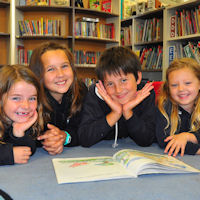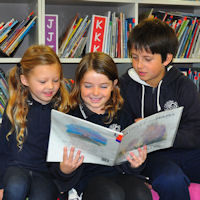 |
Ceduna Area SchoolA community of respectful, resilient and responsible learners |
Contact Us | School Pride Gallery | Downloads
|
 |
Ceduna Area SchoolA community of respectful, resilient and responsible learners |
Contact Us | School Pride Gallery | Downloads
|

Students in Primary School (R-6) access all areas of the Australian Curriculum with learning structured in classroom and specialist learning areas. Teachers are responsible for English, Mathematics, Science, Humanities and Social Science (HASS), Design and Technology, The Arts, Health, and Physical Education. In English, R-2 teachers use the InitiaLit resource, the Year 3-6 teachers use the DfE units of work to explicitly teach all aspects of literacy, which includes reading, writing, spelling, and oral language.Targeted literacy intervention is provided to assist identified students through the delivery of MiniLit and MacqLit. Students learn mathematics daily. Mathematics is part of our daily routines and integrated across subject areas. Key concepts such as Number, Algebra, Measurement and Geometry, Chance and Data are explicitly taught using modelled, guided, and independent processes. To build a positive future it is essential that all students understand and respect the cultural heritage of the First Australians. Our Aboriginal students, parents and families receive support from the Aboriginal Education team. The team works closely with students and families to assist with wellbeing, attendance, intervention monitoring and classroom support. Working with teachers on the implementation of Aboriginal Cultural studies and Aboriginal perspectives in curriculum design and delivery.

In English, teachers use the Accelerated Literacy strategy to explicitly teach aspects of literacy in particular writing, spelling and grammar. Guided Reading and Independent Reading programs are used to develop reading skills. In Maths, in the Early Years "Number" is the focus and the school is a participant in the "Big Idea in Number" project.
Student Wellbeing is guided by Restorative Practices, developing positive and respectful relationships and accepting responsibility for actions and the effects on others. Behaviours are openly discussed in restorative circles to process what has happened, share thoughts and feelings and repair the harm to support others. Through this process students develop strategies to resolve concerns or conflicts and accept and regulate their emotions. We have introduced the Zones of Regulation program from Reception to Year 6. This program is highly recommended by Behaviour Coaches and Education Specialists. The curriculum is designed to help move students toward independently regulating their emotions through learning individualised strategies and tools to manage their feelings and get themselves to a better place. Ongoing pastoral care programs include Buddy Class activities, Primary and Whole School assemblies, electives, and celebrating special events